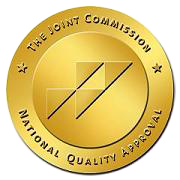What is Binge Eating?

People often mistakenly believe that they cannot be overweight and have an eating disorder. The truth is that eating disorders affect people of all sizes.
In treatment, people tell me many things. They are able to list a litany of crash diets, liquid diets, exercise regimens and diet pills that they have tried — many of which have helped them lose large amounts of weight in the past.
I often hear the following:
- I'm too fat to have an eating disorder.
- I’m just lazy.
- The current weight gain is my fault.
- I’m just not trying hard enough to keep the weight off.
- I just need a little more willpower and then I will be able to lose the weight — and keep it off.
Often, diets end when real life kicks in. And when the diet ends, weight creeps back on again, resulting in feelings of failure and disappointment.
So, my patients show disbelief when I tell them, “I don’t think you are lazy; I think you have been struggling all these years with a serious eating disorder called binge eating disorder (BED).”
It can be difficult to believe that you have BED because having BED versus “just being a bad dieter” takes away the illusion of “just needing to find the right diet.”
Binge eating disorder symptoms
Binge eating disorder is a serious eating disorder. People with BED frequently consume unusually large amounts of food and feel unable to stop eating.
Half of those suffering from BED never realize they have an eating disorder. Instead, they come to treatment only after years and years of yo-yo dieting, drastic weight changes and years of beating themselves up emotionally.
Diets are often marketed as a quick fix: Start this diet and BAM! you will be thinner and happier! This is an illusion. The idea that one can temporarily suffer on a diet to achieve long-term happiness is powerful, though, and very difficult to give up. In fact, this message is pounded into our heads by the media, society, friends and family: being healthy is being thin; to be thin, one simply needs to try harder, eat less and work out more!
Why diets don't work
Let’s say you want to lose weight. You start a diet and are able to maintain it for some time, eliminating your carbs, calories or both. You log your food, say no to sugar and are effective for some time on your diet. You try really hard on your diet even to the extent that some might call it “white knuckling it.” Then, the diet ends and the binge cycle starts again. This is especially true for people with binge eating disorder, where diet cycles often trigger binge cycles.
Diets can be alluring because they are marketed to sound easy and fast. But for someone with an eating disorder, the diet cycle might actually perpetuate an eating disorder, eventually showing up in one of the following ways:
- Binge eating
- Emotional eating
- Compulsive overeating
- Bulimia nervosa
And, research shows that most people are only able to maintain popular diets for a short period of time. In fact, one-third to two-thirds of dieters actually regain more weight than they lose on diets!
Help for binge eating
Think about the last time you were on a diet and then went off. What emotions did you feel? Guilt? Disappointment? Did you feel like a failure? Feelings of depression, anxiety or shame often appear after a failed diet. These feelings can even trigger the next binge, as food has a powerful way of making bad feelings go away.
Unfortunately, these negative feelings can often generalize into other areas of your life. You may even start to say to yourself, “I can’t even stay on my diet so there is no way I will be able to get a promotion (or a date, etc.).” The truth is that sugary and fatty foods may actually work to take away the negative emotions — but only for the short term. After the binge is over, the shame and the guilt can surface once again, triggering another binge or another crash diet. This cycle continues and keeps the eating disorder alive and thriving. Self-blame and shame help to perpetuate the cycle, reinforcing the urge and need to increase willpower.
How to stop binge eating
On a positive note, you can bring the binge/diet cycle to an end. You just need to take the first step and consider the options. Here’s how:
- Consider that you might have an eating disorder — even if you are overweight or obese.
- Consider the possibility that you are not just too lazy, too fat or a bad dieter.
- Consider treatment. Treatment for binge eating is different than going on a diet. It is individualized, specialized and unique to every person.
Struggling with an eating disorder?
One conversation can make all the difference. Connect with us today.
Get Help NowConnect With Us



